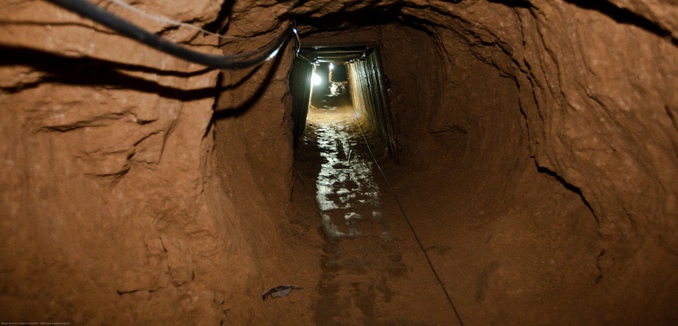Slowly, quietly, the new divided Egypt – divided between the Muslim Brotherhood and its opponents – is changing the space where Egypt meets the Gaza Strip.
While the smuggling of goods through the Rafah tunnels has begun returning to its old patterns, the scope of that smuggling has dropped off dramatically. Both Egyptian and Israeli officials say that since the end of Operation Pillar of Defense in November, no long-range missiles have entered Gaza.
The Egyptian Armed Forces and its chief, Defense Minister Abdul Fatah Al-Sisi, are responsible for that.
One Israeli official explained that after Israel’s Operation Pillar of Defense in the Gaza Strip last fall, as well as after August’s terror attack in the Sinai Peninsula that killed 16 Egyptian soldiers, Egyptian army and security officials more fully understand that cooperation with the Jewish state is important.
“Israel and the new Egypt now have a bevy of mutual interests, even if the implication of that [cooperation] is harming the Muslim Brotherhood in Gaza,” the official said, referring to Hamas, the Brotherhood’s daughter organization Hamas. The official said that
Israeli officials are cautiously optimistic about the ongoing cooperation. None expect complete calm to take hold in the increasingly lawless Sinai. But they’re pleased to see a drop in weapons smuggling to Gaza, even if the drop will turn out to be only temporary.
While the office of President Mohamed Morsi is still keeping its distance from Israel and indeed from the outside world – Morsi’s men do not generally meet with foreign diplomats – Egypt’s military and intelligence have shown little interest in snubbing the Zionists.
Relations are not without tension. Egyptian officials said that in order to slow the flow of missiles to a trickle, Israel must make more and better use of Egyptian mediation to apply pressure on Hamas.
Cairo has hinted at its displeasure at what Egyptian officials saw as Israel’s hasty, aggressive response earlier this month to renewed rocket fire from Gaza. The rockets were the first fired at Israel since the ceasefire that ended Pillar of Defense – itself an operation aimed at thwarting rocket fire from Gaza – and Israel held Hamas responsible and responded.
Egyptian sources insisted that Israel knew Hamas was not responsible for the fire. Hamas has come down against those responsible – even making arrests – presumably out of concern over another escalation with Israel.
“So what did you do in Gaza?” one Egyptian official asked. “Bottom line: you increased the smuggling through the tunnels.” In other words, whatever isn’t allowed to move above ground will find its way below it.
[Photo: Marius Arnesen / Flickr]




